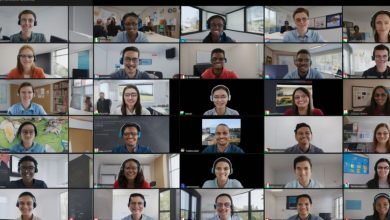Government Sponsored Exchange Programs You Should Know
Government-sponsored exchange programs offer transformative opportunities for students, scholars, and professionals to study, research, or work abroad with financial support and institutional backing. By alleviating tuition costs, living expenses, and travel fees, these programs enable participants to focus on academic and cultural immersion rather than financial constraints. In this article, you will learn what qualifies as a government-sponsored exchange, explore the top programs you should consider, understand the benefits and eligibility requirements, and gain practical tips for crafting a competitive application. Whether you aspire to pursue graduate studies, conduct research, or develop professional skills overseas, this guide will help you navigate the landscape of government-funded exchange opportunities and choose the right path for your goals.
What Are Government-Sponsored Exchange Programs
Definition and Objectives
Government-sponsored exchange programs are structured initiatives funded or endorsed by national governments to facilitate the temporary placement of individuals in foreign institutions or organizations. These exchanges can range from academic scholarships and cultural immersions to professional internships and research fellowships. The primary objectives of such programs include:
-
Diplomacy and Soft Power: By sending participants abroad, governments foster cross-cultural understanding and strengthen bilateral relationships.
-
Capacity Building: Scholars and professionals gain access to cutting-edge facilities, advanced training, and best practices, which they can apply in their home countries.
-
Cultural Exchange: Participants act as cultural ambassadors, sharing their own traditions while learning about host-country customs, thus promoting empathy and mutual respect.
-
Workforce Development: Thousands of participants develop specialized skills—such as advanced research methodologies or industry-specific expertise—that enhance their employability and contribute to national development back home.
“What qualifies as a government-sponsored exchange program?”
-
Funding or Endorsement by a National Government Agency
Programs are typically administered through ministries of education, foreign affairs, or dedicated scholarship boards, ensuring rigorous oversight and consistent funding. -
Comprehensive Financial Support
Participants often receive full or partial coverage of tuition, monthly stipends for living costs, travel grants, and health insurance, minimizing out-of-pocket expenses. -
Diverse Benefits and Opportunities
Government-sponsored exchanges encompass a variety of domains—academic degrees, short-term research projects, cultural immersion, and professional internships—catering to different career stages and fields of study.
Benefits of Participating in Government-Sponsored Exchanges
Financial Advantages
-
Full or Partial Tuition Coverage
Many programs eliminate tuition fees entirely, allowing participants to enroll in top-ranked universities or institutions without student loan debt. -
Monthly Living Stipends
Stipends are calibrated to local costs of living, enabling participants to pay rent, utilities, and daily expenses without seeking additional employment. -
Travel Grants and Health Insurance
Round-trip airfare or travel allowances reduce the initial financial burden, while mandatory health coverage ensures access to medical services abroad. -
Housing Allowances or Guaranteed Accommodations
Certain programs include dormitory placements or housing subsidies, further lowering the cost of living for participants in expensive urban centers.
Academic and Professional Growth
Skill Development Through Immersion
-
Language Proficiency Gains
Immersion in a host-country environment accelerates language acquisition. Daily interactions with local peers, professors, and community members provide authentic practice in reading, writing, speaking, and listening. -
Cross-Cultural Communication and Networking
Participants collaborate with international colleagues, attend seminars, and join student organizations, building global networks that last well beyond the exchange period. -
Access to Cutting-Edge Research Facilities or Industry Placements
Whether working in state-of-the-art laboratories or interning with leading corporations, participants gain hands-on experience with advanced technologies and methodologies that may not be available in their home countries.
Cultural and Diplomatic Impact
-
Building Lifelong International Friendships
Shared experiences—such as group projects, cultural outings, and homestay placements—forge strong bonds that extend into professional collaborations and personal visits years later. -
Serving as a Youth Ambassador
As official representatives of their home countries, participants showcase local customs, values, and innovations, challenging stereotypes and promoting mutual understanding. -
Promoting Global Collaboration
Exposure to different policymaking, educational models, and workplace practices encourages participants to apply new ideas back home, fostering innovation and cross-border partnerships.
Top Government-Sponsored Exchange Programs
Fulbright Program (United States)
The Fulbright Program, administered by the U.S. Department of State’s Bureau of Educational and Cultural Affairs, is one of the most prestigious international exchange initiatives. It offers grants to U.S. citizens for graduate study, research, or teaching abroad and welcomes non-U.S. candidates to the United States.
-
Mission and Target Participants
Designed to increase mutual understanding between people of the United States and other countries through academic and cultural exchange, Fulbright supports graduate students, scholars, teachers, and professionals. -
Key Benefits
-
Full tuition coverage at host universities
-
Monthly stipend calibrated to local living costs
-
Round-trip airfare to and from the host country
-
Health benefits and accident insurance
-
-
Eligibility Criteria
-
U.S. citizenship for outgoing candidates; foreign citizenship for incoming scholars
-
Bachelor’s degree or equivalent before the grant period begins
-
Demonstrated academic excellence and leadership potential
-
Language proficiency appropriate to the host country (often assessed via transcripts or test scores)
-
-
Application Timeline and Components
-
Candidates typically apply 12–15 months before the program start date.
-
Required documents include academic transcripts, a detailed project proposal or study plan, standardized language test scores (if applicable), letters of recommendation, and a personal statement highlighting leadership and cross-cultural adaptability.
-
Erasmus+ (European Union)
Erasmus+ serves as the European Union’s flagship program for mobility in education, training, youth, and sport. While many recognize Erasmus+ for its student exchange opportunities, it also supports staff mobility, strategic partnerships, and capacity-building projects.
-
Program Scope and Target Participants
Open to students, faculty, and staff from participating universities, Erasmus+ covers study abroad periods of three months to one year, professional internships, and teaching assignments. -
Types of Exchanges
-
Student Mobility: Enables undergraduates, graduates, and doctoral candidates to study or intern abroad at partner institutions.
-
Staff Exchanges: Offers teaching or training assignments for professors, researchers, and university administrators.
-
Strategic Partnerships: Funds cross-border collaborations between educational institutions to develop best practices and innovative curricula.
-
-
Benefits
-
Monthly Erasmus+ grants vary by country, typically offsetting housing, food, and local transportation costs.
-
Language preparation courses and intercultural workshops before departure.
-
Support services at host institutions, including orientation sessions, mentoring, and academic tutoring.
-
-
Eligibility and How to Apply
-
Must be enrolled at a university participating in the Erasmus+ charter.
-
Selection is managed by home institutions, which allocate grants based on academic merit, motivation, and proposed activities.
-
Credit transfers are facilitated through the European Credit Transfer and Accumulation System (ECTS), ensuring that coursework abroad counts toward home-degree requirements.
-
Chevening Scholarships (United Kingdom)
Chevening Scholarships, funded by the UK Foreign, Commonwealth & Development Office (FCDO), target emerging global leaders and professionals seeking to pursue a one-year master’s degree at any UK university.
-
Purpose and Scope
The Chevening program aims to attract future leaders from around the world, equipping them with the skills and knowledge to drive change in their home countries. -
Financial Coverage
-
Full tuition fees at a UK university
-
Monthly living allowance for personal expenses
-
Return airfare from home country to the UK
-
Dedicated arrival allowance and thesis grant (if applicable)
-
Visa application fee and associated costs
-
-
Eligibility Requirements
-
Citizenship of an eligible Chevening country (list updated annually)
-
Bachelor’s degree equivalent to a UK upper second-class honours degree
-
At least two years (2,800 hours) of work experience
-
Demonstrated leadership potential through professional achievements or community service
-
English language proficiency to meet university admission standards (usually IELTS or equivalent)
-
-
Application Process and Selection Criteria
-
Online application with sections on educational background, employment history, leadership examples, and proposed study plan
-
Three reference letters, one academic and two professional, attesting to candidate’s suitability
-
Shortlisting based on academic and professional credentials, leadership experience, and the strength of candidacy
-
Final round includes a face-to-face or virtual interview conducted by regional panels
-
Japan Exchange and Teaching (JET) Programme (Japan)
The JET Programme, funded by Japan’s Ministry of Education, Culture, Sports, Science and Technology (MEXT) and coordinated by the Council of Local Authorities for International Relations (CLAIR), recruits graduates as Assistants Language Teachers (ALTs), Coordinators for International Relations (CIRs), and Sports Exchange Advisors (SEAs).
-
Program Goals and Roles
-
ALT: Support English language education in public schools, working alongside Japanese teachers.
-
CIR: Facilitate internationalization efforts in local government offices, handling cultural events and cross-border partnerships.
-
SEA: Promote sports exchange and healthy lifestyles among communities, often at a prefectural level.
-
-
Stipend and Benefits
-
Competitive monthly salary, adjusted by regional placement and contract length (ranging from ¥3.36 million to ¥3.96 million annually).
-
Housing assistance or lump-sum housing allowance in the first month.
-
Provision of exit allowance upon contract completion and possible renewal for up to five years.
-
Pre-departure orientation in home country and in-depth training in Japan.
-
-
Qualifications and Timeline
-
Bachelor’s degree in any field from an accredited university.
-
Japanese language proficiency is not mandatory for ALTs, but CIR and SEA roles often require conversational or business-level Japanese.
-
Application cycles vary by participating country but generally occur between October and February for placements starting in July or August.
-
DAAD Scholarships (Germany)
The German Academic Exchange Service (DAAD) offers a comprehensive range of scholarships and grants for international students, researchers, and faculty at all academic levels.
-
Program Categories
-
Undergraduate and Graduate Scholarships: Support full-degree or degree-completion studies at German universities.
-
Doctoral and Postdoctoral Fellowships: Fund research projects, including collaboration with German research institutes and universities.
-
Short-Term Research Grants: Enable faculty and researchers to conduct focused research during a semester or summer period in Germany.
-
-
Financial Support
-
Monthly stipends ranging from €850 to €1,250, depending on degree level and program.
-
Travel allowances to cover airfare and visa-related expenses.
-
Health insurance subsidies and, in some cases, family allowances for accompanying spouses or children.
-
-
Eligibility and Application Steps
-
Strong academic performance (minimum GPA typically above 2.5 on the German scale) and a compelling project proposal for research-oriented programs.
-
Language requirements vary by program: many graduate and doctoral programs are conducted in English, while undergraduate and short-term courses often require German proficiency (TestDaF or DSH).
-
Submission of academic transcripts, a detailed CV, letters of recommendation, and a research outline or study plan. Applications typically close between October and January for the following academic year.
-
Australia Awards (Australian Government)
Australia Awards are long-term development scholarships that support citizens of partner countries in Asia, the Pacific, Africa, and the Middle East to pursue full-time undergraduate or postgraduate degrees, short courses, and distance learning.
-
Purpose and Selection Focus
-
Aim to advance development goals of partner countries by equipping recipients with high-level skills and leadership qualities. Scholarships target individuals aligned with development priorities—such as public policy, health, education, agriculture, and sustainable development.
-
-
Scholarship Offerings
-
Postgraduate Degrees: Master’s and PhD programs at participating Australian universities.
-
Short Courses: Tailored programs focusing on practical skills, often spanning several weeks to a few months.
-
Distance Learning Options: Allow recipients to complete coursework remotely while applying knowledge locally.
-
-
Covered Expenses
-
Full tuition fees and mandatory enrollment costs.
-
Return airfare, establishment allowance, and textbook allowances.
-
Living stipend calibrated to location and award level.
-
Overseas student health cover for visa requirements.
-
-
Application Criteria and Procedure
-
Citizenship in a partner country (list determined by the Department of Foreign Affairs and Trade).
-
Demonstrated commitment to contribute to national or community development.
-
Strong academic background with minimum GPA requirements outlined in the application guidelines.
-
Leadership potential evidenced by professional experience or community involvement.
-
English language proficiency (IELTS minimum 6.5 or equivalent) for academic programs.
-
Applications are submitted online through the Australia Awards portal, with deadlines varying by country and program type, typically between February and April for the following academic year.
-
Emerging Government Exchanges Worth Exploring
-
New Zealand’s Endeavour Scholarships and Fellowships
Highly competitive awards for postgraduate study, research, and professional development in New Zealand. Offer full tuition, travel costs, and living stipends, with priority given to projects of national significance. -
Brazil’s Science Without Borders (Historical Overview)
Although phased out, this large-scale program once offered thousands of scholarships to Brazilian students for STEM fields. Its legacy informs current bilateral agreements and targeted science fellowships. -
Canada’s Mitacs Globalink Research Internship
Provides undergraduate and graduate students from select countries with 12- to 24-week research internships at Canadian universities, including a stipend and travel subsidy. -
China’s CSC (China Scholarship Council) Programs
Offer full scholarships for international students to pursue undergraduate, graduate, or doctoral degrees in China, with stipends, accommodation, and medical insurance included. These programs foster research collaboration and cross-cultural understanding.
Eligibility and Application Tips
General Eligibility Requirements
-
Academic Performance
Most programs require a minimum GPA or equivalent academic standing, often in the upper third of your cohort. For research fellowships, a strong publication record or research experience is advantageous. -
Language Proficiency
Programs conducted in English mandate test scores such as IELTS (minimum 6.5 or 7.0), TOEFL (90+), or equivalent. Programs in host-country languages—such as German or Japanese—require proficiency certifications (TestDaF, DSH, JLPT). -
Citizenship or Residency Status
Applicants must hold citizenship of an eligible country or, in some cases, permanent residency. Dual citizens need to apply under the correct nationality and follow corresponding guidelines. -
Age Limits and Professional Experience
Certain programs—like Chevening and Australia Awards—target mid-career professionals and recent graduates, specifying work experience requirements ranging from two to five years. Others, such as Erasmus+, accept undergraduates with no age restrictions beyond being currently enrolled.
How to Prepare a Competitive Application
-
Research Early
Identify program deadlines 12–15 months in advance. Gather detailed information about funding levels, host institutions, and program duration. Create a calendar that includes application deadlines, language test dates, and reference letter submission dates. -
Gather Required Documentation
-
Academic Transcripts: Obtain official transcripts in both original language and certified English translations, if necessary.
-
Curriculum Vitae (CV): Highlight academic achievements, extracurricular activities, leadership roles, and relevant work experience.
-
Personal Statement or Research Proposal: Craft a clear, concise narrative explaining your academic or professional objectives, how they align with the program’s mission, and what unique perspectives you bring.
-
Letters of Recommendation: Choose referees—professors, supervisors, or community leaders—who can attest to your academic potential, leadership qualities, and cross-cultural adaptability. Ensure they are familiar with program expectations and submission deadlines.
-
Language Test Scores: Schedule tests early, allowing time for retakes. Include official score reports with your application package.
-
-
Crafting a Strong Personal Statement
-
Clear Objectives: Explain why you chose the specific program, outlining how it will further your career goals and contribute to your home country’s development.
-
Demonstrate Cultural Adaptability: Provide examples of prior international experiences, language learning, or community service that showcase your openness to new cultures.
-
Highlight Leadership Examples: Describe instances where you initiated projects, led teams, or overcame challenges, emphasizing skills transferable to an international exchange environment.
-
Articulate Post-Exchange Plans: Illustrate how you intend to apply acquired knowledge and skills after returning home—whether through research projects, policy initiatives, or entrepreneurial ventures.
-
-
Prepare for Program-Specific Interviews
-
Common Questions: Practice answers to “Why this program?” “Describe a cross-cultural challenge you overcame” and “How will you contribute to the host community?”
-
Emphasize Long-Term Vision: Convey how the exchange fits into your broader career trajectory and how it will benefit both your home country and the host institution.
-
Professionalism and Confidence: Dress appropriately, maintain good posture, and speak clearly. Demonstrate genuine enthusiasm and cultural curiosity.
-
-
Finalize Application and Submit Early
-
Double-Check Forms: Verify that all fields are complete, attachments meet formatting guidelines, and signatures (if required) are present.
-
Avoid Last-Minute Technical Issues: Submit at least one week before the deadline to account for possible website downtimes or file-upload errors.
-
Request Confirmation: Ensure you receive email or portal confirmation of submission and save all acknowledgment receipts for future reference.
-
“What documents are needed for government exchange program applications?”
-
Official Academic Transcripts and Diplomas
-
Curriculum Vitae or Résumé detailing extracurricular and volunteer activities
-
Personal Statement or Research Proposal tailored to program objectives
-
Two to Three Letters of Recommendation from professors or employers
-
Language Proficiency Test Results (if required by the program)
-
Copy of Passport and, in some cases, police clearance or medical certificate
Comparative Overview of Major Programs
| Program | Sponsor | Duration | Financial Coverage | Eligibility Basics | Language Requirement |
|---|---|---|---|---|---|
| Fulbright | U.S. Department of State | 6 months to 2 years | Tuition, stipend, travel, health insurance | U.S. citizenship (for outgoing); host-country citizenship (for incoming) | Varies by country; usually English |
| Erasmus+ | European Union | 3 months to 1 year | Monthly stipend, travel grant, participation costs | Enrolled at participating institution | Depends on host-country language |
| Chevening | UK Foreign & Commonwealth Office | 1 year (master’s) | Tuition, living allowance, travel, visa fees | Citizen of eligible country, leadership potential | IELTS minimum 6.5+ |
| JET Programme | Japanese Government (MEXT) | 1 to 5 years | Monthly salary, housing, orientation | Bachelor’s degree, Japanese language skills beneficial | Japanese beneficial but not mandatory |
| DAAD Scholarships | German Government | 1 semester to multi-year | Monthly stipend, travel allowance, health insurance | Academic excellence, research proposal | German or English, depending on program |
| Australia Awards | Australian Government | 1 to 2 years (postgraduate) | Tuition, travel, living stipend, health cover | Citizen of partner country, development focus | English – IELTS minimum 6.5+ |
Analysis of Key Differences
-
Duration and Flexibility
Some programs, like Fulbright and DAAD fellowships, allow multi-year stays, whereas scholarships such as Chevening and Australia Awards typically cover one-year master’s degrees. JET placements can extend up to five years for Assistants Language Teachers. -
Financial Scope
Fulbright and Chevening offer full tuition coverage plus substantial living stipends. Erasmus+ grants often cover partial living expenses and travel, while Australia Awards include comprehensive travel, tuition, and living allowances. The JET Programme provides a monthly salary instead of tuition benefits. -
Language Considerations
Most programs operate primarily in English, but host-country language proficiency may be required or strongly recommended. For example, DAAD doctoral programs often require German skills, while JET CIR and SEA roles typically mandate conversational Japanese. -
Target Audience
Erasmus+ focuses on currently enrolled students and academic staff within Europe. Chevening and Australia Awards target early- to mid-career professionals with leadership potential. JET prioritizes recent graduates, whereas DAAD spans undergraduates to postdoctoral researchers.
Frequently Asked Questions
What is a fully funded government exchange program?
A fully funded government exchange program covers tuition fees, living allowances, travel grants, and health insurance, eliminating major financial barriers and enabling participants to focus on academic or professional development without personal expense burdens.
How do I know which exchange program fits my career goals?
Start by clarifying your primary objective—whether you seek academic research, graduate-level study, cultural immersion, or professional internships. Then match that goal to program features such as duration, host institutions, fields of study, eligibility criteria, and post-exchange obligations. Compare how each program aligns with your long-term vision.
Are there age restrictions for government-sponsored exchanges?
Age requirements vary by program. Some, like Erasmus+ and JET, accept applicants shortly after undergraduate graduation with no upper age limit. Others—such as Chevening and Australia Awards—target mid-career professionals, typically requiring several years of work experience. Always review the specific guidelines in each program’s official documentation.
Can I apply to multiple government exchange programs simultaneously?
Yes, provided you meet each program’s eligibility criteria. However, each application requires a distinct personal statement, reference letters, and project outlines tailored to the program’s mission. Ensure you have enough time and resources to prepare high-quality applications for all desired programs.
How do selection committees evaluate personal statements?
Committees look for clear evidence of leadership potential, alignment between your goals and the program’s objectives, cultural adaptability, and a realistic plan for applying acquired skills after the exchange. Use specific examples from your academic, professional, and community experiences to demonstrate how you will contribute to the host institution and your home country.
Conclusion
Government-sponsored exchange programs represent unparalleled opportunities to pursue advanced studies, groundbreaking research, and professional development abroad—often without the financial burden of tuition or living costs. By understanding program objectives, eligibility requirements, and application best practices, you can position yourself as a competitive candidate for initiatives such as Fulbright, Erasmus+, Chevening, JET, DAAD, and Australia Awards. Start your research early, craft a compelling personal statement, secure strong recommendations, and align your goals with the program’s mission. Whether you aspire to develop cutting-edge skills, foster cross-cultural connections, or contribute to your home country’s development, a government-funded exchange can catalyze your personal, academic, and professional growth for years to come.
Published on: 4 de June de 2025








